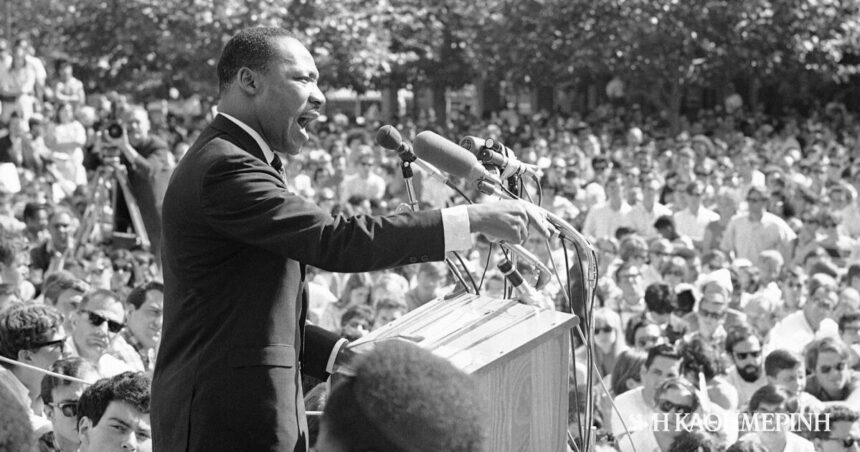Michael King Jr. was born on January 15, 1929 in Atlanta, Georgia, he was the second of three children of pastor Michael King, but he changed his name to Martin Luther in honor of the German Protestant theologian, Martin Luther, and Alberta King, the former teacher.
From the age of 6, he faced racial discrimination when he first went to public elementary school, which was exclusively for blacks (colored, according to the terminology of the time), and lost the opportunity to play with white children because they were not allowed to hang out . He then attended a private middle and high school, where his interest in the place of blacks in American society became apparent. After attending a seminary in theology, he decided to continue his studies in this field and thus enrolled at Boston University, from where he would graduate in 1955.
At the age of 24, he was appointed pastor of the Dexter Avenue Baptist Church in Montgomery, Alabama, a city at the center of racism. When, in December 1955, black dressmaker Rosa Parks was arrested by the police and fined $10 for daring to sit in an all-white seat on a city bus and refusing to give up her seat, the black community boycotted the buses until nullify all racist laws. This fight was led by King, who also directed it.
Despite the incidents and arrests, the first step had been taken, as in November 1956 the Supreme Court found Montgomery’s racially discriminatory bus policies unconstitutional. A few months later, in January 1957, Martin Luther King, along with others, would found the Southern Christian Leadership Conference. The organization had the goal of spiritual and moral revitalization of the African-American community and the organization of protests in various cities. By 1961 King had been arrested twice.
In the Birmingham, Alabama campaign in the spring of 1963, a series of protests were organized by the Southern Christian Leadership Conference. In this context, King led a protest march to the city hall. However, the sheriff of the city, Jim “Bull” Connors, one of the most hardened racists, proceeded to use violence to break up the demonstration. Television footage captured the attacks with whips, clubs and police dogs, prompting strong reactions and the intervention of Justice Secretary Robert Kennedy to free King, who was held for days in solitary confinement.
Then, in August 1963, the famous March on Washington was organized, in which Martin Luther King participated as a representative of his organization. In front of the Abraham Lincoln Memorial, King would deliver his famous “I have a dream…” speech, which remains a landmark to this day.
Thanks to his pacifist attitude, he would quickly become a key interlocutor for Presidents Dwight Eisenhower, John Fitzgerald Kennedy and Lyndon Johnson on minority issues, which in effect made him a representative of African Americans.
A first distinction for his struggle came at the end of 1963, when the magazine Time named him personality of the year. One year later, on October 14, 1964, Martin Luther King will be awarded the Nobel Peace Prize.
“Dr. King,” Kathimerini writes on its front page, “is the second black leader to win the Nobel Peace Prize within four years. […] And it is believed that he is the youngest of those who have been honored so far with this award. […] Note that the decision […] received unanimously on behalf of the Nobel committee. In Atlanta, Georgia, as soon as he was informed of the news, the honoree declared: “I am deeply moved by the honor that has happened to me to be awarded a prize of such importance.” […] He added that he would spend the entire prize money on the civil rights movement.”
King attended the award ceremony in December 1964 and accepted his award on behalf of thousands of civil rights activists.
Despite his efforts, in the years that followed the movement had changed quite a bit – some groups became radicalized and resorted to the use of violence, causing the situation to become particularly tense. Despite the tense atmosphere, King decided to make a public appearance in Memphis and go ahead with his speech on April 4, 1968, defying the danger. But he didn’t have time, as, at the moment he was on the balcony of the “Loren” motel, a shot from the opposite boarding house cut the thread of his life.
Column Editor: Myrto Katsigera, Vassilis Minakakis, Antigone-Despina Poimenidou, Athanasios Syroplakis




